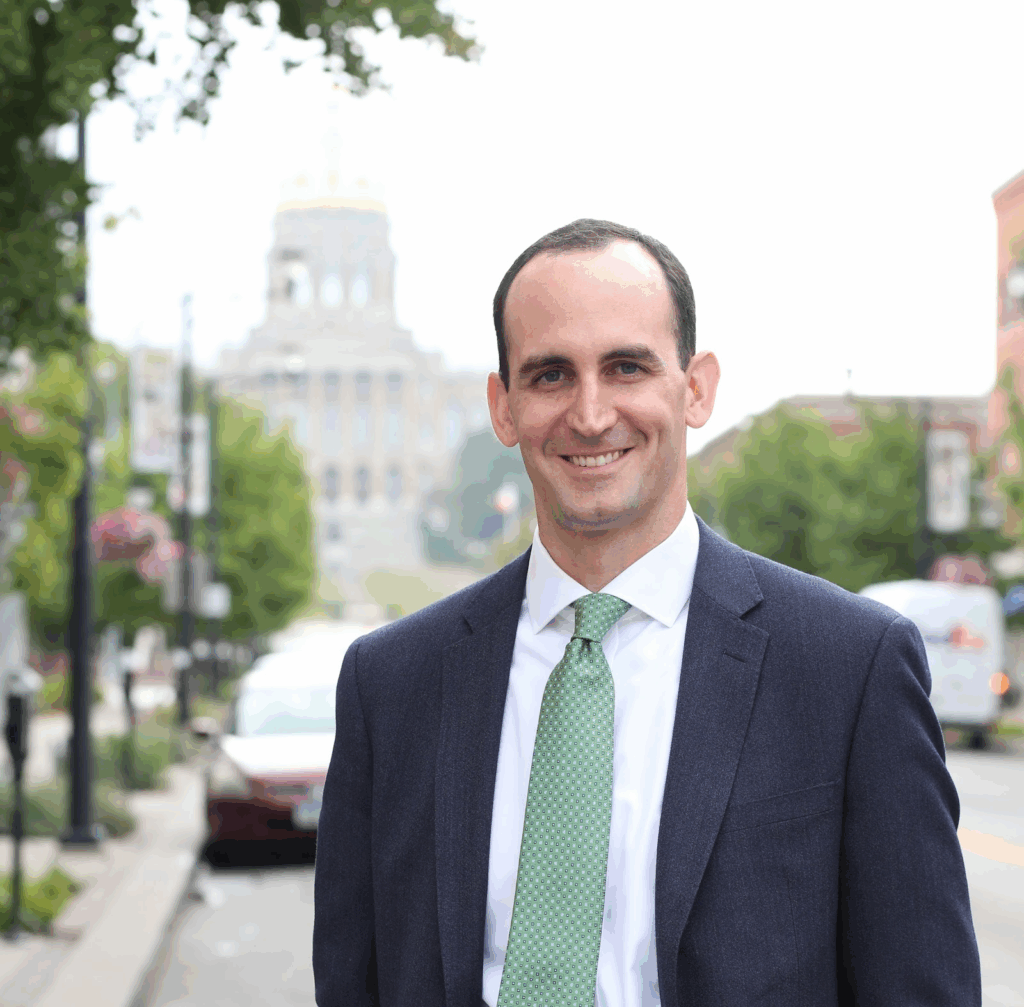Partnership eyes priorities
Annual D.C. trip includes airport, biotech, transportation proposals

Editor’s note:
The Greater Des Moines Partnership is making plans for its annual policy promoting journey to Washington, D.C., where at least 197 business representatives and community leaders will have a word with the congressional delegation and other people of power. Business Record senior writer Perry Beeman will make the trip to report on the efforts.
Beeman sat down with Partnership officials recently to get a read on this year’s top priorities. The Partnership represents more than 300 investors and 5,300 regional business members in a seven-county region. Its Government Policy Council spent three months developing the federal policy agenda with input from five meetings. The Partnership now has announced the policy priorities it will present during the organization’s annual trip to Washington,
D.C. May 10-12.
Here’s a rundown on some of the proposals:
Iowa Biotechnology Center
The Partnership supports policies that will lead to the development and expansion of biotechnology, the growth of the Cultivation Corridor, and the creation of an Iowa Bioscience Innovation Center in Central Iowa. The federal government is considering the creation of six innovation institutes around the country, supported by public-private partnerships.
Exports
Given Iowa’s $15.1 billion in exports of manufactured and value-added agricultural goods and the Partnership’s Greater Des Moines Regional Export Plan, the agenda calls on Congress and the administration to support pro-trade policies and initiatives. The organization supports the Trans-Pacific Partnership (TPP), Transatlantic Trade and Invest Partnership (TTIP), and the proposed International Services Agreement.
Bus rapid transit
The Partnership supports the Des Moines Area Regional Transit Authority’s push for $20 million from the federal government for DART’s proposed Ingersoll/University bus rapid transit project. Bus rapid transit is a rail-like service with special branding and stations.
Long term transportation funding
A long-term reliable federal transportation reauthorization bill is important to economic recovery, the Partnership said. The more common short-term funding measures don’t provide the investment stability and predictability needed for planning and improving Iowa’s growing transportation network, the organization maintained.
“America’s transportation network has been stretched beyond capacity and has fallen into disrepair,” the policy report noted. “A decaying transportation system costs the economy more than $78 billion annually in lost time and fuel. Transportation funding also results in job creation.”
Forty-five of the 405 bridges in the Des Moines metropolitan area have been deemed “structurally deficient,” according to a report released by the Des Moines Area Metropolitan Planning Organization. The reports says that 100 of the 409 bridges analyzed were considered structurally deficient or functionally obsolete. And in an area that has 3,000 miles of roads, 48 percent rated fair, poor or very poor. The average road condition for the area was rated 60 out of 100.
Rail
The Partnership supports the long-discussed extension of passenger rail service from Chicago through Des Moines to Omaha, as well as from the Twin Cities through Des Moines to Kansas City.
Airport improvements
The Partnership supports an increase in the passenger facility charge that would help plug a $200 million gap in financing for a proposed $420 million project to build a new Des Moines terminal and reconfigure airport operations. The Partnership also wants the federal government to continue its $3.35 billion in spending for airport improvements. The Partnership also supports the Ankeny Regional Airport’s request for $536,000 to construct a south hangar apron for more than 40 aircraft on a waiting list, and for $992,130 to build a fence to keep deer off airport grounds.
Quality of life
Also on the Partnership’s wish list is solid support for the federal trails programs and continued funding for the Land and Water Conservation Fund program, Institute of Museum and Library Services, National Endowment for the Arts, National Endowment for the Humanities, National Parks Service, and the National Science Foundation.
Other goals on the wish list:
Wind energy: Extension of the wind energy production tax credit.
Barging: Improvements to the locks and dams on the Mississippi River and elsewhere.
Art: Financial support for the restoration of the Mary Miss environmental art at the Greenwood Park pond.
Trails: Grants for high-priority projects.
College grants: Simplification of the Free Application for Federal Student Aid (FAFSA) form and related application processes for federal financial aid.
Wellness: Tax credits for employer-sponsored workplace wellness programs and reforms that would permit greater variation of health premiums based on participation in wellness programs.
Bio-based renewable products: Federal programs to promote and assist in research, development, and commercialization of biofuels and biobased materials.
Deficit reduction: Credible long-term deficit reduction and balanced budget plan.
Taxes: Policies that promote growth.
Social Security: Reform that addresses long-term solvency.
Federal Courthouse: Money to build a replacement.
Apes: Support for retiring research chimpanzees at the Ape Cognition and Conservation Initiative.
Graduate medical education: Continued support for more physicians.
Immigration: Revamped visa programs.
See the full priority list:
www.desmoinesmetro.com/dctrip










